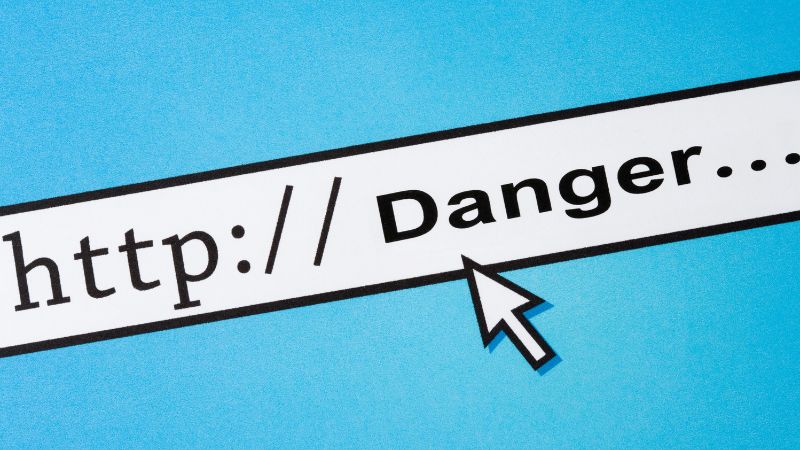May these 25 tips for online safety helps parents, students, educators, and workplace professionals. Find out what you can do to avoid online criminals. Online safety is a must because our world is increasingly becoming digital. The internet has become a vital tool in our daily lives.
When I was in college, it was just starting. It was no big deal.
The other day, I was in one of the restaurants in Los Banos where many students eat. I noticed that every student had a mobile phone in one hand, and a spoon in another. They were not even looking at the food they were eating.
This widespread use (and addiction) poses numerous challenges.
Cyber threats, online scams, misinformation, identity theft, and cyberbullying are prevalent issues that can negatively impact our safety and mental health.
This is why an education on online safety is a must. Let’s delve into 25 easy-to-understand tips to help parents, educators, students, and workplace professionals stay safe online.
What is online safety?
Online safety, also known as internet safety or cyber safety, refers to the knowledge of maximizing a user’s personal safety and security risks on the internet. It includes the ability to control personal and private information that one shares online and who can access and use it.
Online safety involves several key aspects:
- Privacy: Protect personal information and reputation online. Be careful about what you share and with whom, and take steps to secure your online profiles and accounts.
- Security: Protect your digital devices from threats like viruses, hackers, and scams. Use strong, unique passwords, enable two-factor authentication, and keep your software up-to-date.
- Digital Literacy: Understand how to find and verify reliable information online, recognize online scams and fake news, and know your rights and responsibilities as a digital citizen.
- Online Etiquette: Respect others online, recognize and avoid cyberbullying, and understand that our online actions can have real-world consequences.
Securing online safety is critical for several reasons:
- Identity Theft: With the increased amount of data we share online, criminals can potentially steal personal information to commit fraud, such as opening credit cards in your name or selling your information to others. Up to 5 million Filipinos claim to be identity theft victims.
- Cyberbullying: Internet users, especially children and teenagers, may face cyberbullying which can lead to serious emotional harm.
- Online Predators: The internet can provide anonymity for criminals and predators, making it essential to protect vulnerable individuals, particularly children, from those who might seek to exploit them. In the Philippines, it is claimed that 2 million kids are targets of online predators. This is very alarming.
- Scams and Phishing: Scammers have become more sophisticated, using tactics like phishing to trick individuals into revealing sensitive personal information. I am a member of several FB groups. One is DepEd Tambayan. I noticed that many scammers target teachers.
- Privacy: With the advent of social media, personal photos, and details can be shared on a wider scale than intended. An innocent post could potentially be seen by unwanted eyes or could impact future opportunities, such as jobs or college admissions.
- Reputation: Our online actions can have lasting consequences. Something posted in the heat of the moment can affect personal relationships, future job prospects, and even legal situations.
It is crucial to learn and follow online safety practices to protect ourselves and others from these potential threats.
The internet offers numerous opportunities for learning, connecting, and entertainment, but it’s essential to use it responsibly and take steps to remain safe.

Online Safety Tips
Criminals are getting good at using the internet for their schemes. Each day in the Philippines, we hear about the victims of cybercrime. It is for this reason that the government enacted Republic Act No.10175 or the Cybercrime Prevention Act.
There are those who think that the National ID registration was given to scammers. For these scammers know a lot of information about us. Actually, cybercriminals can easily get information from many Filipinos. For example, PhilSys advised Filipinos against fake websites that encourage people to give their information.
I observed that many Filipinos do not secure their online information. I noticed that on FB, it was easy for people to give their email addresses and contact number to “win lots of money”. Give them a picture of a saint, or a beautiful quote, and they are ready to say, “Amen”.
They are just too happy to learn that they have won an online contest they just heard about for the first time.
My hope is for you to learn from these simple tips for online safety.
Great leadership isn’t an event—it’s a habit. Get actionable leadership habits every Monday and Thursday.
Online Safety Tips for Parents
We ought to teach kids how to protect themselves.
I remember that when I was young, my mother taught me how to cross the street. This time, it is not enough that our children can cross the street safely. We also need to teach them how to be safe when they open their mobile phones, iPad, and computers.
May these online safety tips provide you ideas on how to keep your children safe.
1. Monitor Internet Usage
Discuss online boundaries with your children: Talk to your kids about what websites are safe and appropriate for them to visit. Make sure they know the boundaries and stick to them.
Regularly check their browsing history: With their knowledge, review your child’s internet history to ensure they’re visiting approved sites.
Example: If your child likes online games, ensure they’re playing age-appropriate and safe games by regularly reviewing their gaming activity.
2. Educate Your Children
Explain the concept of personal information: Define what constitutes personal information, such as their full name, home address, school name, and phone number.
Discuss the implications of sharing such information online: Explain the dangers of sharing personal information online, including identity theft and online predation.
Example: Role-play scenarios where an online character asks for personal information, teaching them how to respond appropriately.
3. Encourage Open Communication
Foster a supportive environment at home: Make sure your child feels safe to discuss any issues or concerns they encounter online.
Encourage your children to talk about their online experiences: Regularly ask your child about their online activities, what games they’re playing, who they’re talking to, and how they feel about their online interactions.
Example: If your child encounters a disturbing message online, make sure they feel comfortable bringing it to you for discussion and advice.

Online Safety Tips for Educators
Teachers have many opportunities to integrate the topic of bullying and cyberbullying into their subjects. They need a bit of creativity, of course. But they play an important role in preventing a culture of bullying in schools.
On the roof of DepEd schools, one can read “Child-friendly school”. We can make that declaration beyond a painting on the roof. We can make it real for every student who enters your gate.
Many years ago, when I was young, I saw how ugly bullying is. And now I learned that 65 percent of Filipino students have experienced being bullied. We need to do more to protect our children.
4. Promote Digital Literacy
Teach students how to evaluate the credibility of online sources: Provide lessons on how to distinguish reliable sources from unreliable ones, helping them understand the importance of accuracy and credibility in information.
Discuss the dangers of spreading misinformation: Make students aware of how false information can spread quickly online and the negative effects it can have.
Example: Use real-life examples of fake news to illustrate the importance of fact-checking and responsible information sharing.
5. Introduce Online Etiquette
Discuss the importance of respectful online discourse: Teach students to express their thoughts and opinions online in a respectful manner, encouraging empathy and understanding.
Encourage students to empathize with others online: Encourage them to imagine how the person on the other side of the screen may feel before they post or comment online.
Example: Create a classroom activity where students evaluate different online comments and discuss whether they are respectful or not.
6. Guide to Safe Social Media Use
Teach students about the importance of privacy settings: Provide a lesson on adjusting privacy settings on social media platforms, emphasizing why it’s important to limit who can see their posts.
Discuss the potential consequences of oversharing online: Discuss real-life scenarios that illustrate the dangers of oversharing personal information or inappropriate content online.
Example: Use hypothetical situations to show how a simple post could lead to unwanted attention, such as revealing their location or posting provocative photos.
Tips for Students
7. Protect Personal Information
Understand what constitutes personal information: Learn what kinds of information are considered personal (like your home address, phone number, personal email, etc.) and should not be shared publicly online.
Limit the personal information shared online: Be cautious when filling out online forms or posting on social media, only sharing the minimal necessary information.
Example: Avoid posting pictures that reveal your home address or school name, or sharing this kind of information in online chatrooms or forums.
8. Be Selective With Friend Requests
Only accept friend requests from people you know personally: Online, people aren’t always who they claim to be. It’s safer to limit your online connections to people you know in real life.
Example: If you receive a friend request from a profile with no mutual friends and scant personal information, it’s best not to accept the request as the account could be a fake or scam.
9. Think Before You Post
Understand the permanency of online posts: Everything you post online leaves a digital footprint and could potentially be seen by anyone, even years later. Deleting a post does not guarantee it’s completely gone.
Consider the potential consequences before posting: Posts can affect personal relationships, future job prospects, and even legal situations.
Example: Consider how a rant about a teacher or boss, even if it feels justified at the moment, could come back to haunt you in the future.
Online Safety Tips for Workplace Professionals
10. Use Strong Passwords
Use a mix of characters, including letters, numbers, and symbols: The stronger your password, the harder it is for someone to guess or hack. Avoid common words or phrases and try to include a variety of characters.
Avoid using personal information in your passwords: Information such as your birthdate, name, or address can be easily guessed by someone trying to access your account.
Example: Instead of using “password123”, try something like “P@ssw0rd!23”.
11. Be Careful With Emails
Understand how to recognize phishing emails: Phishing emails often appear to be from a trusted source but are designed to trick you into providing sensitive data. Look for signs such as poor grammar, a sense of urgency, or email addresses that don’t match the company name.
Avoid clicking on suspicious links: These could lead to malicious websites or download malware onto your device.
Example: If you receive an email from your “bank” asking for personal information, don’t click any links or provide information. Instead, contact your bank directly to verify the request.
12. Secure Your Connection
Use a VPN when connecting to public Wi-Fi: Public Wi-Fi networks are often unsecured, making it easier for others to intercept your data. A VPN encrypts your data, making it harder for others to access.
Understand the dangers of unsecured networks: Using unsecured networks can lead to identity theft, hacking, and other cybersecurity threats.
Example: If you need to check your bank account while at a café, use a VPN to protect your information.
General Online Safety Tips
13. Keep Software Updated
Regularly check for software and system updates: Developers often release updates to fix security vulnerabilities, so keeping your software updated can protect your devices from various threats.
Understand that updates often include security improvements: An update might not only bring new features but also patches for security loopholes.
Example: If your smartphone indicates a system update is available, install it immediately.
14. Backup Data Regularly
Make regular backups of important files: Regular backups can help protect your data from ransomware attacks or device failures.
Use a reliable backup service: Cloud-based services can automatically back up your files and protect them with encryption.
Example: Set your phone to automatically back up photos and important documents to the cloud.
15. Be Skeptical
Don’t trust everything you read online: Fake news and misinformation are common online. Always check the source and verify the information before believing or sharing it.
Fact-check information: Use reliable fact-checking websites to verify the information before you believe or share it.
Example: If a shocking news story appears on your social media feed, don’t share it immediately. Check the story’s origin and verify its validity from a trusted news source.
16. Beware of Online Scams
Understand common types of online scams: Be aware of different scam types such as phishing, fake online stores, or lottery scams.
Never provide personal or financial information unless you’re sure the request is legitimate.
Example: If you receive an email stating you’ve won a prize but need to pay a fee to claim it, it’s likely a scam.
17. Secure Your Social Media Accounts
Regularly review and adjust your privacy settings: Make sure you’re comfortable with who can see your posts, send you friend requests, or follow you.
Be cautious of the information you share in your profile and posts: Avoid sharing sensitive information like your home address, phone number, or personal email.
Example: Review your social media accounts at least once a month to ensure your privacy settings are appropriate.
18. Avoid Clicking on Suspicious Links
Be aware that malicious links can appear in emails, messages, pop-up ads, and social media posts: These can lead to harmful websites or download malware onto your device.
Use a trusted antivirus program that can help detect and block malicious links.
Example: If a pop-up ad promises a free prize but requires you to click a link, it’s likely a scam.
19. Avoid Oversharing
Be cautious about what you post about yourself online: Sharing too much information can make you a target for cyberstalkers or identity thieves.
Limit the personal details you share in your online profiles and posts.
Example: Avoid sharing vacation plans in real-time to prevent potential burglars from knowing when your home is empty.
20. Report Suspicious Activity
If you see something odd or concerning online, report it to the site administrators or local law enforcement.
Understand that your report can help protect others from becoming victims.
Example: If you receive a threatening message on a social media platform, report it to the site administrators.
21. Use Two-Factor Authentication
This adds an extra layer of security to your online accounts by requiring two forms of identification, often your password and a verification code sent to your phone.
Enable two-factor authentication on all accounts that offer it.
Example: If someone tries to log into your email account from an unrecognized device, two-factor authentication would prevent access unless they also have your phone to receive the verification code.
22. Don’t Download from Untrusted Sources
It could lead to malicious software on your device: Only download software, apps, or files from websites or online stores that you know and trust.
Make sure your antivirus software is up-to-date and scans any downloaded files.
Example: If you’re looking for a new game, download it directly from a trusted source like the App Store or Google Play Store, not a random website.
23. Review Permissions for Mobile Apps
Some applications can access more of your personal information than necessary: Always review and adjust app permissions to limit access to your data.
Be cautious of apps that request access to unnecessary data, like a game that wants to access your contacts.
Example: If a new puzzle game you’ve downloaded asks for access to your location or microphone, consider if it’s necessary for the game’s functionality. If it’s not, deny the permission request.
24. Stay Informed About Latest Threats
Cyber threats are constantly evolving: Keeping up-to-date on the latest scams, malware, and vulnerabilities can help you stay one step ahead.
Subscribe to a reliable online safety newsletter or blog.
Example: Follow cybersecurity blogs or news websites to stay informed about new types of online threats and how to protect against them.
25. Have a Plan for Responding to Incidents
If you become a victim of cybercrime or your online safety is compromised, knowing how to respond can minimize the damage.
This might include changing passwords, contacting your bank, or reporting to law enforcement.
Example: If you notice suspicious activity on your credit card, immediately contact your bank, change your online banking password, and report the incident to your local law enforcement.
That wraps up the 25 tips for online safety. Remember, being proactive and vigilant are the keys to staying safe online.
These tips are just the starting point.
Everyone’s online safety journey is unique and ongoing, but by following these tips and keeping up-to-date on the latest online safety advice, you can greatly reduce your risks and enjoy the benefits of the digital world more securely.








